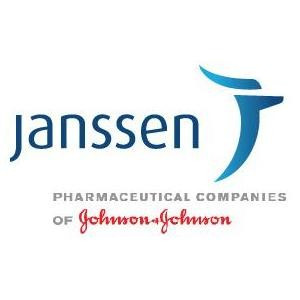NEW: RI Receives $2.6M in Settlement with Janssen Pharmaceuticals
Thursday, August 30, 2012
In the largest-ever multi-state consumer protection settlement with a pharmaceutical company, Attorney General Peter F. Kilmartin announced today that he and 37 other Attorneys General have reached a record $200 million dollar settlement with Janssen Pharmaceuticals, Inc., a subsidiary of Johnson & Johnson. Rhode Island will receive approximately $2.67 million as its share of the settlement.
Thus far in 2012, Rhode Island has recouped over $12.6 million as a result of multi-state consumer protection settlements.
In the state’s complaint, Attorney General Kilmartin alleged that Janssen improperly marketed the antipsychotic drugs Risperdal, Risperdal Consta, Risperdal M-Tab and Invega. The complaint, filed today in Providence County Superior Court with the settlement, alleges that Janssen engaged in unfair and deceptive practices when it marketed Risperdal for unapproved or off-label uses. Risperdal is among a class of drugs known as atypical or second generation antipsychotics.
GET THE LATEST BREAKING NEWS HERE -- SIGN UP FOR GOLOCAL FREE DAILY EBLAST“The public has a right to expect that the representations made by pharmaceutical companies be truthful and accurate,” said Kilmartin. “Our office will continue to hold drug companies accountable when they put profits ahead of patients’ health. This historic settlement is a major milestone in our continued efforts to root out healthcare fraud, and it sends a clear warning that the marketing and sales of drugs for unapproved, off-label uses will not be tolerated."
After an extensive four year investigation, Janssen agreed to change not only how it promotes and markets its atypical antipsychotics but also agreed to refrain from any false, misleading or deceptive promotion of the drugs. In addition to the record setting payment, the settlement targets specific concerns identified in the investigation. The settlement agreement restricts Janssen from promoting its atypical antipsychotic drugs for “off-label” uses that the U.S. Food and Drug Administration (“FDA”) has not approved. Additionally, for a five-year period, Janssen:
Federal Law prohibits pharmaceutical manufacturers from promoting their products for off-label uses; although physicians may prescribe drugs for those uses. The Attorney General’s complaint alleges violations of Rhode Island’s Deceptive Trade Practices Act in that Janssen promoted Risperdal for off-label uses to both geriatric and pediatric populations, targeting patients with Alzheimer’s disease, dementia, depression and anxiety, when these uses were not FDA-approved and for which Janssen had not established that Risperdal was safe and effective.
The Attorney General’s Office from Florida led the investigation into Janssen’s marketing and promotional practices. In addition to Rhode Island, Attorneys General of the following states and the District of Columbia participated in the settlement: Arizona, California, Colorado, Connecticut, Delaware, Hawaii, Idaho, Illinois, Indiana, Iowa, Kansas, Maine, Maryland, Michigan, Minnesota, Missouri, Nebraska, Nevada, New Hampshire, New Jersey, New York, North Carolina, North Dakota, Ohio, Oklahoma, Oregon, Pennsylvania, South Dakota, Tennessee, Texas, Vermont, Washington, Wisconsin and Wyoming.



